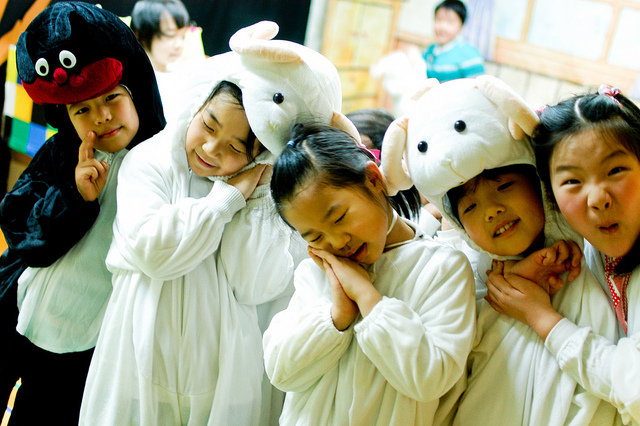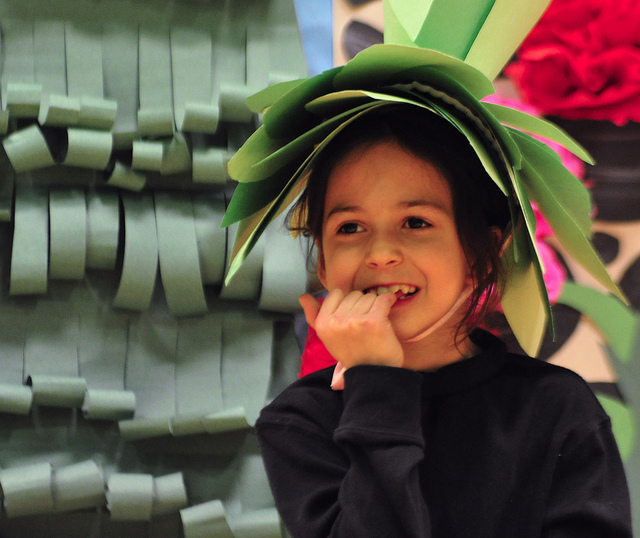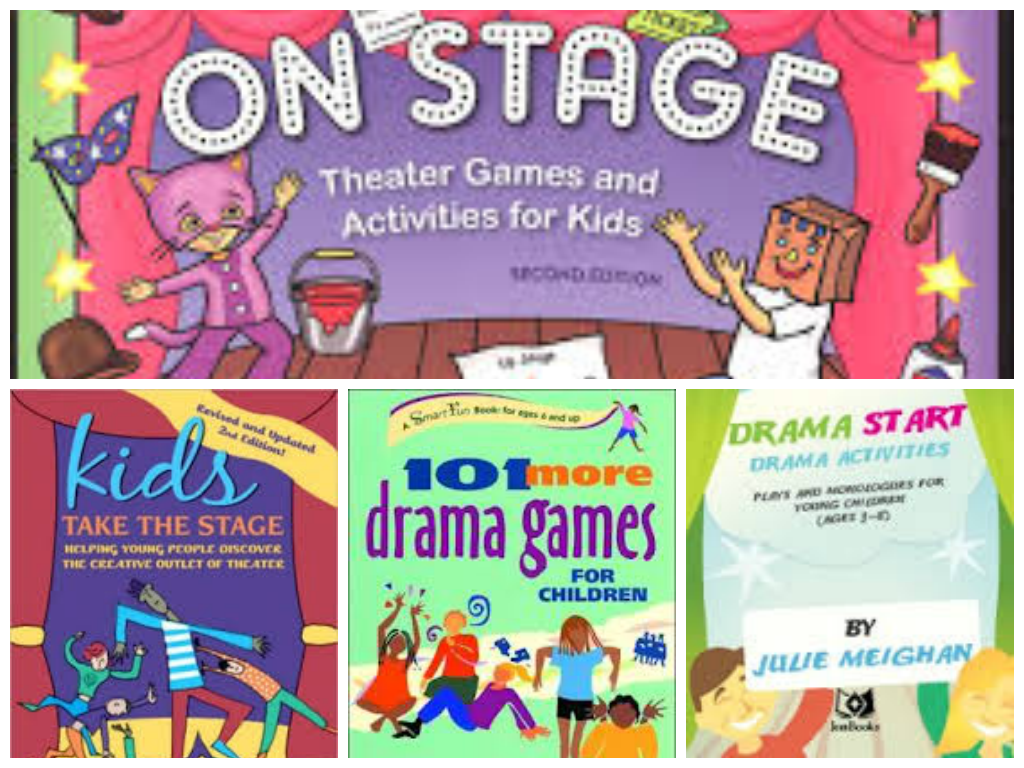Theatre Acting for Kids – The Parents Guide
Some kids seem to be born for the stage. If you have a child with a flair for the dramatic, you may have been wondering how to help encourage or develop their love of acting. The best way to get kids into acting is by getting them into a drama class, but if you don’t happen to have any in your area, or the cost of lessons is outside your budget, no need to worry. There is actually quite a lot you can do to help your child learn about drama, theatre and acting at home.
Learning how to act for the stage can be very beneficial for kids. Theatre teaches children skills like public speaking, teamwork, and self-discipline (just to name a few), which can have a significant impact on how successful they are as adults. It is also super fun, and kids love it.
So if you are looking for some ideas to help your young actor, then read on because there are lots of cool stuff parents can do in the comfort of their living room.

Why is Theatre Acting so Great for Kids
There are many reasons to encourage your children’s love of drama or acting; some studies have shown a correlation with drama involvement and high academic achievement. More specifically, kids involved in theatre arts have higher standardized test scores, stronger reading comprehension skills, and better communication skills.
Not only is acting good for kids academically, but it can also help build social skills like self-esteem, confidence, and it lets children learn to express themselves creatively.
Learning to act isn’t just beneficial for outgoing children; it can also be helpful for children who are shy or are lacking confidence. Theatre can help improve confidence by giving kids experience being in front of a crowd as an ensemble player in a safe environment, while also letting them practice their public speaking skills. For a shy child, the advantages of an activity that can help them overcome the fear of public speaking is a huge plus.

Easy Things you can do at Home
When kids are small, they are natural actors, taking on roles and different characters through dramatic play. As they get older they start to grow out of this type of play, so to help bring it back you can use:
Props You probably already have a house full of Halloween costumes, puppets, dolls, masks, and action figures collecting dust. Pull them out and dust them off, because these can all be used as a great starting point to helping kids use their imaginations to portray whatever crazy fun stuff they might come up with.
Drama Games For small children, a wonderful way to help them learn about acting is through games. There are hundreds of games that you can use. (Check our website and book recommendations below to learn more). You can find games that are suitable for all different ages. Using drama games to help kids learn is not only fun, but it helps focus and concentrate their energies and it allows them to learn by doing.
Puppet Plays Hand Puppets are a natural and fun extension of the pretend play for kids. If a child puts a puppet on their hands most can’t resist launching into a silly voice or taking on a new character for the puppet. It gives kids the freedom to express their ideas and feelings while trying on new personalities in a safe and non-threatening way.
Readers Theatre is a style of theater in which the actors do or do not memorize their lines. Actors use only vocal expression to help the audience understand the story rather than visual storytelling such as sets and costumes. If your children are able to read, then you can make it a fun activity by reading with them and each reader can take on the personality of the character they are reading. You and your child can make the characters come alive through dialogue, facial expressions, and hand gestures. This is a simple way to develop acting skills without having to put much preparation on effort into doing it. It’s also a pretty fun way to read a book.
Best Drama and Acting Books for Kids
Most of the books for younger kids contain acting games not really much on theory. Kids often learn better when having fun and this is especially true with acting. Here are four books that we recommend for younger kids:

- On Stage is probably my favorite book of theatre activities for kids. It has more than 125 theater games that introduce basic theatre concepts, ideas, techniques, and everything kids need to know by learning by playing the ‘games’. It is quite a big book (224 pages) that is full of cute illustrations and lots of easy to read instructions on how to do the games that are suggested. The games are broken down into Getting onstage (games about blocking and stage direction), twisting your tongue and warming up, anytime theatre games, games that are played in a circle, Ideas for funny scenes, creating characters, improvisation, using and becoming objects, and creative drama. The book is laid out in a way that you can just pick it up and easily find a fun game that you can do with your child. The instructions are clear, brief and very reader-friendly, and each of the games says what it is that you will be learning from the game (but not in a heavy-handed way).
- Kids Take the Stage is a book that has been written for parents and teachers who work with kids ages 8-18. It has basic lessons in acting, sample scenes, relation techniques, trust-building exercises, games, improvisations, and building from the rehearsal process through to a final show. This book isn’t as readable as On Stage but there is lots of great information in it if you are looking for practical information on how to get a show going.
- Drama Start! is a collection of drama activities. It includes games, role-playing ideas, action poems, plays, and monologues, suitable for children between the ages of 3 and 8. This book is accessible and easy to follow. It is divided into three parts – Drama Games, Plays, and Monologues. Each section provides the reader with a variety of creative and imaginative ideas for stimulating drama activities in many different settings. The activities are simple but on point with the lessons and detailed descriptions.
- 101 Drama Games for Children is a straight-up drama gamebook. The games in this book are non-competitive and include introduction games, sensory games, pantomime, story games, sound, and games with masks and costumes. Each game contains an age guideline, an estimated time of play, and suggestions for the most appropriate type of music. It also has some interesting information on how to link drama games to play, as well as why it is important to use drama games and some helpful tips. If you are going to be leading a group that will be performing the games, it gives some information on things to keep in mind.
Online Drama and Acting Lessons
There are lots of free online videos for adults who are looking for acting lessons, but very little for kids. (If you know of any good free online acting lessons for kids, let me know I’d love to add them to the list). I did find a couple of lessons that are aimed at kids, check them out below:
http://www.youtube.com/watch?v=8t-7fDMa_dQ
Websites
- Beat By Beat Press is a team of writers and arts educators in New York City and San Francisco who are passionate about inspiring kids through musical theatre. They publish original, high-quality plays for kids to perform and this site has a great list of drama games.
- Drama Resource has all sorts of information for young actors, parents, and teachers. It also has a really good list of games that can be used at home to help kids develop their acting skills.
- Drama Notebook has over 40 free drama games that make great activities for drama teachers.
Hopefully, you found something that might be useful to help your young performers develop their acting skills in a fun way. If you have any great resources, please let us know so we can share them with other parents.
photo credit: Seoulful Adventures via photopin cc
photo credit: Len Radin via photopin cc
